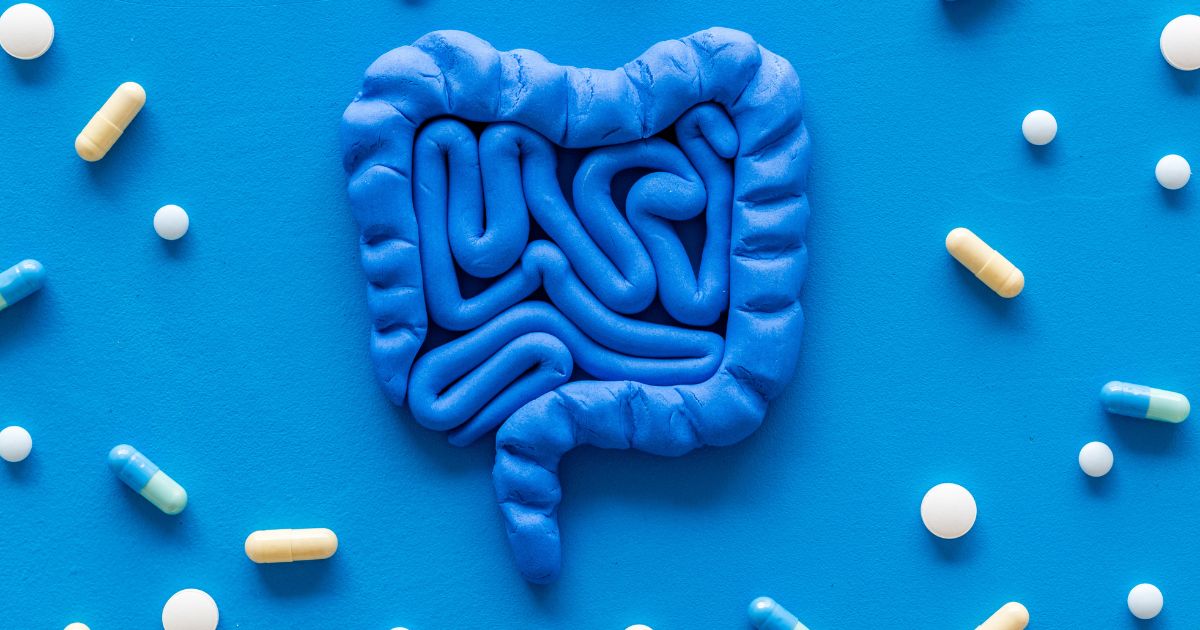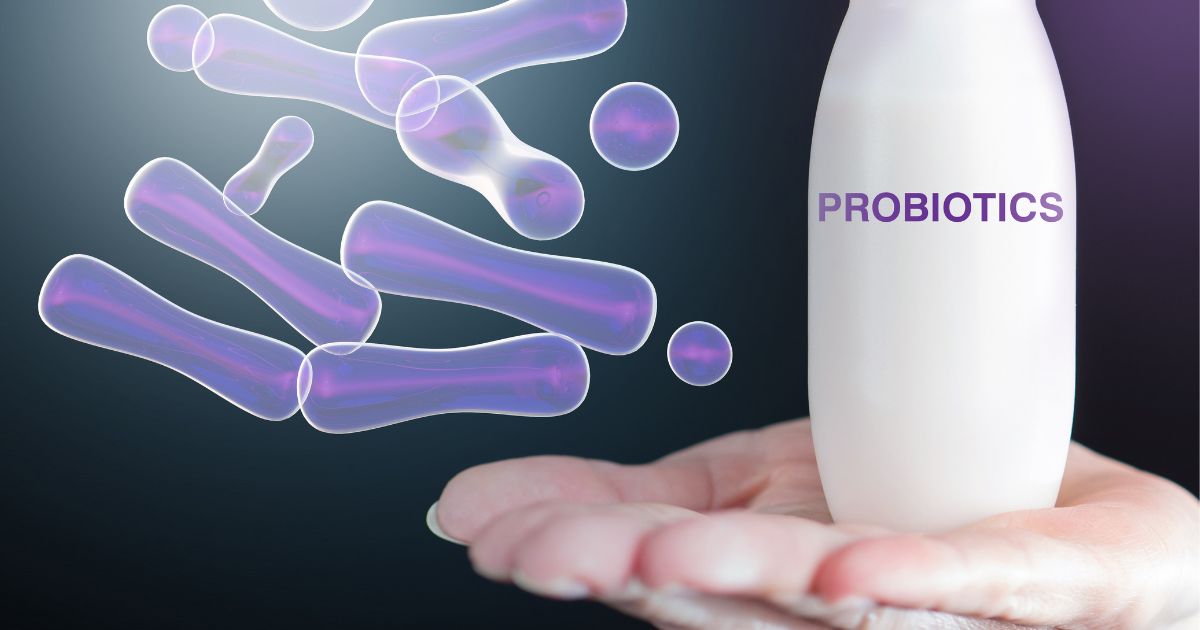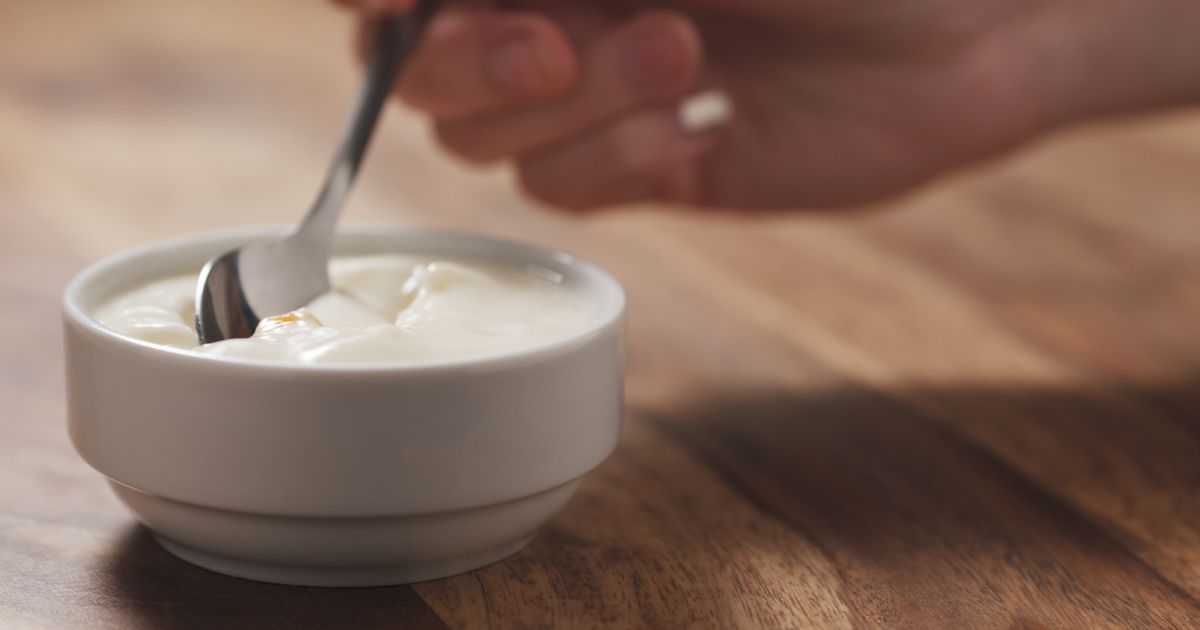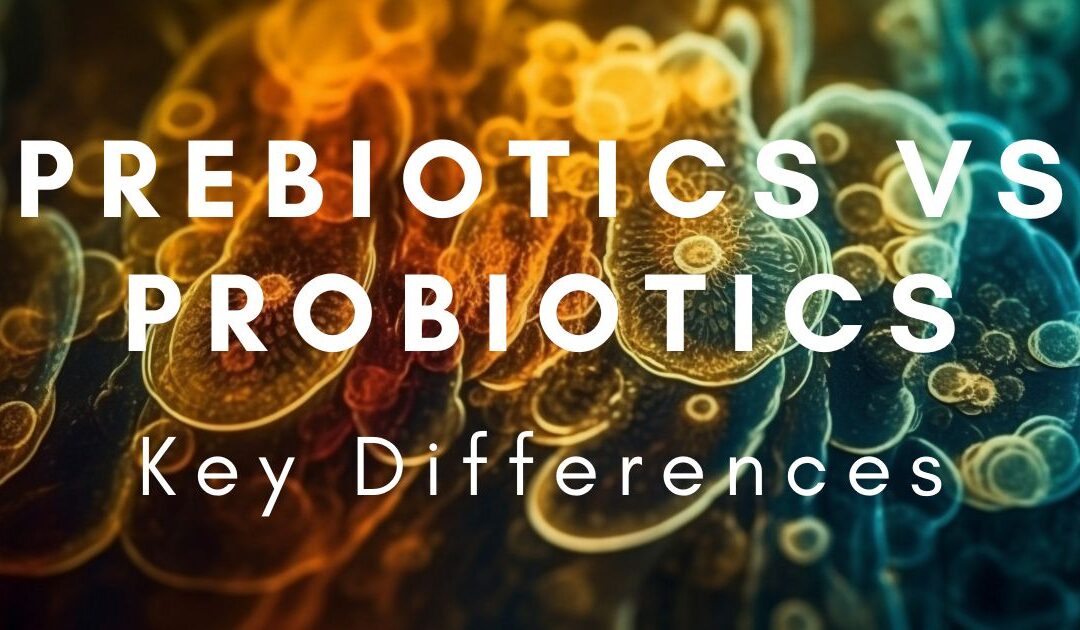Diving Into The Microbiome World
Introduction To Probiotics And Prebiotics
In the world of nutrition and well-being, two terms have gained significant attention over the past few decades: probiotics and prebiotics. These terms are closely related, but they’re quite distinct, each playing its own essential role in helping to promote health.
Probiotics are live microorganisms, often referred to as “good,” or “friendly” bacteria. These bacteria are found in various foods and supplements, and can help promote a multitude of potential health benefits when introduced into the gastrointestinal system.1
Prebiotics, on the other hand, are a form of dietary fiber that nourishes these friendly bacteria (probiotics) in your gut. You can think of them as a food source for good bacteria, helping them to thrive. Prebiotics are also naturally present in certain foods.2
Understanding the relationship between probiotics and prebiotics is essential to grasping the concept of gut health. Think of them as the dynamic duo of your gut ecosystem.
So, let’s delve into the world of these microscopic allies, exploring the ways they can help benefit the body, and how they can be incorporated into your daily life.
Deconstructing Probiotics & Prebiotics

A Closer Look At Probiotics
Imagine probiotics as friendly bacteria. They’re active, live cultures that can help keep your gut well-balanced.
Commonly found in fermented foods or supplements, these little gut warriors are beneficial for the health of the human body, particularly the “gut.” They’re often referred to as “friendly” bacteria because they play a key role in maintaining a happy, balanced, and healthy gut community (the microbiome).
Probiotics can provide a range of potential health benefits by regulating the delicate balance between beneficial and harmful bacteria in the gut, preventing the overgrowth of potentially harmful organisms. This balance helps support proper digestion and nutrient absorption, and it also plays a role in supporting a strong immune system.3
Probiotics have also shown promise in addressing other health issues, such as helping with digestive and bowel issues and supporting mental health by influencing the gut-brain connection. As research on probiotics expands, their potential to help promote overall well-being is becoming more and more fascinating.4,5
Some of the most common types of probiotics include strains of Lactobacillus and Bifidobacterium, which are frequently found in fermented foods, like yogurt, kefir, and sauerkraut, as well as in probiotic supplements.6
Unveiling the Secrets Behind Prebiotics
Prebiotics can be viewed as fuel for these good bacteria. Essentially, they’re non-digestible food ingredients that can stimulate the growth and activity of probiotics in your gut, helping them to thrive and maintain a balanced, diverse gut microbiome.7
Prebiotics are commonly found in plant-based foods, such as fruits, vegetables, whole grains, and legumes. Some well-known prebiotic compounds (which you’ll often see listed on supplement labels) include inulin, fructooligosaccharides (FOS), and galactooligosaccharides (GOS).8
Consuming prebiotics can have a positive impact on digestive health and overall well-being by supporting and boosting the effects of those “good” probiotic microorganisms, ensuring they thrive.
Exploring The Potential Benefits

Potential Health Perks of Consuming Probiotics
Probiotics offer major potential health benefits for absolutely everyone – from babies to the elderly. These health perks extend well beyond just supporting digestive health.
As you’ve seen, one of the most notable potential benefits of consuming probiotics is their role in maintaining a balanced and diverse gut microbiome. They help prevent the overgrowth of harmful bacteria and support the reproduction of beneficial microbes.
This balance is crucial for proper digestion and nutrient absorption.9
A well-balanced gut microbiome can also have a positive impact on the immune system, as – fun fact – a significant portion of the immune cells reside in the gut. Probiotics may also help bolster the immune response.10
Beyond the gut, research suggests that probiotics may have a significant impact on various other aspects of health. For example, there’s growing evidence that the brain is influenced by the gut microbiome due to the gut-brain connection (where these two major organs “talk” to one another). Probiotics may actually play a role in supporting mood and mental health.11,12
Probiotics have also shown potential for immune system and skin health, indicating that their positive influence on the body may be extensive.13
As ongoing research discovers more about the interactions between probiotics and human health, it becomes increasingly clear that these “friendly gut bugs” are powerful allies for whole-body health and wellness.
Potential Advantages Of Ingesting Prebiotics
Prebiotics are fermented by probiotic bacteria in the large intestine, unleashing valuable byproducts known as short-chain fatty acids. These byproducts not only energize the cells lining the gut, but they help support a multitude of potential health benefits.14
They also wield influence over the make-up and function of the gut bacteria by ensuring the growth of friendly bacteria.15
The International Scientific Association of Probiotics and Prebiotics has laid out specific criteria for compounds to earn the title of a “prebiotic.” To make the cut, these substances must demonstrate resistance against the harsh conditions of the stomach and digestive enzymes, evade absorption in the gastrointestinal tract, and enhance the growth or activity of intestinal bacteria.16
The Power Couple: Food Sources For Your Gut Health
Tasty Foods Rich In Probiotics
Food-wise, you’ve got a lot of great options for including probiotics in your diet, mostly in the form of fermented foods. These include yogurt, kefir, kimchi, and sauerkraut, kombucha (a type of fermented tea), miso soup, and certain aged cheeses goat’s milk, sheep’s milk, and aged “raw” French/Italian cheeses.17
Remember: diversity in your probiotic intake is key for a well-balanced gut microbiome.
Flavorful Foods Loaded With Prebiotics
If you’re seeking prebiotics, cast your net wide. Common sources are chicory root, onions, and asparagus. You might also try Jerusalem artichoke, garlic, leeks, and even dandelion greens.18
Satisfy your appetite and feed your gut bacteria by consuming these prebiotic foods regularly.
Synbiotics: The Best Of Both Worlds?
Synergy Of Pre- And Probiotics: What Does Science Say?
As you’ve seen, there’s an important relationship between prebiotics and probiotics when they work together.
This leads us into the world of “synbiotics.” Synbiotics is the term that’s given when prebiotics and probiotics are combined into one product (supplement).
Synbiotics are, however, more complex than just a mix of pre-and probiotics. As the name suggests, a “synergy” must exist between the two chosen compounds. So, formulating synbiotics remains challenging.19
Because of this, it’s important to choose a high-quality supplement. 20

Key Takeaway: Prebiotics Vs Probiotics
Understanding Which Gut Health Ally Is Better For You
The question of whether probiotics or prebiotics are superior isn’t actually about whether one is better than the other. Rather, they serve distinct but complementary roles in supporting gut health.
Probiotics are live microorganisms that directly contribute to the balance of the gut microbiome by introducing “good” bacteria. Prebiotics are non-digestible dietary fibers that nourish these beneficial bacteria, helping them flourish.
The best approach to promoting gut health – and therefore overall well-being – is to incorporate both probiotics and prebiotics into your diet. It’s an essential step towards a healthier, more resilient you.
So, whether it’s through goats milk yogurt, kefir, fiber-rich vegetables, or supplements, embracing probiotics and prebiotics can potentially significantly impact your health, offering a more balanced, healthy future.
Sources
- https://www.nccih.nih.gov/health/probiotics-what-you-need-to-know
- https://www.ncbi.nlm.nih.gov/pmc/articles/PMC6463098/
- https://www.columbiadoctors.org/news/can-you-make-your-gut-healthier-probiotics
- https://www.ncbi.nlm.nih.gov/pmc/articles/PMC4045285/
- https://www.health.harvard.edu/mind-and-mood/probiotics-may-help-boost-mood-and-cognitive-function
- https://www.healthline.com/nutrition/11-super-healthy-probiotic-foods
- https://www.ncbi.nlm.nih.gov/pmc/articles/PMC6463098/
- https://www.ncbi.nlm.nih.gov/pmc/articles/PMC6463098/
- https://www.ncbi.nlm.nih.gov/pmc/articles/PMC4045285/
- https://www.uclahealth.org/news/want-to-boost-immunity-look-to-the-gut
- https://www.health.harvard.edu/mind-and-mood/probiotics-may-help-boost-mood-and-cognitive-function
- https://pubmed.ncbi.nlm.nih.gov/31914909/
- https://www.ncbi.nlm.nih.gov/pmc/articles/PMC4045285/
- https://columbiasurgery.org/news/2017/02/09/what-you-need-know-about-prebiotics
- https://columbiasurgery.org/news/2017/02/09/what-you-need-know-about-prebiotics
- https://www.ncbi.nlm.nih.gov/pmc/articles/PMC6463098/
- https://www.healthline.com/nutrition/11-super-healthy-probiotic-foods
- https://www.healthline.com/nutrition/19-best-prebiotic-foods
- https://www.frontiersin.org/articles/10.3389/fmicb.2022.919725/full
- https://www.frontiersin.org/articles/10.3389/fmicb.2022.919725/full

